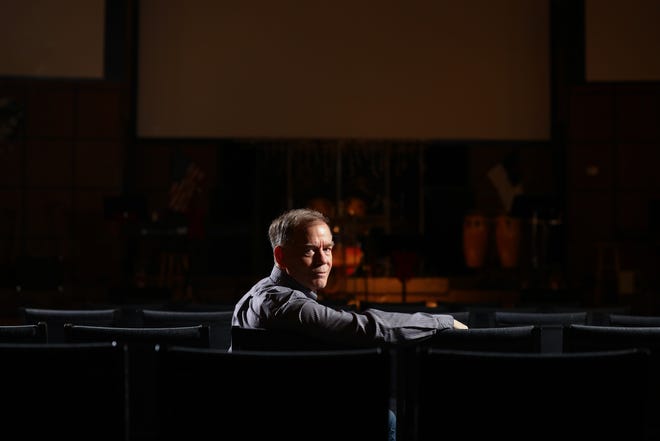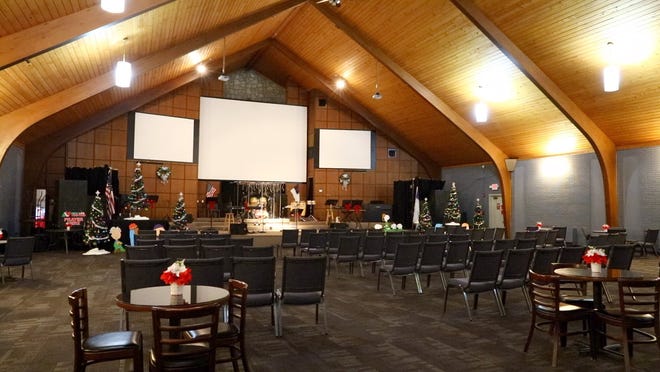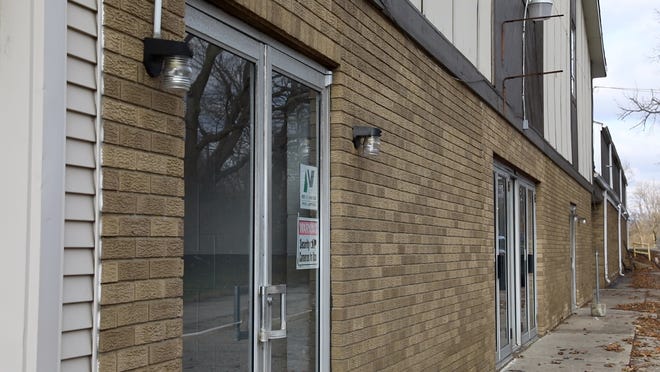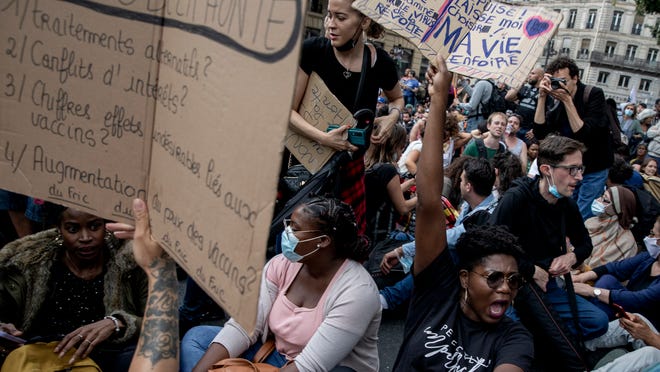
Pastor Ken Ritz felt sick when he saw the zero balance on the church’s bank account.
His mind immediately went to the eight checks the church had just sent out as Christmas gifts. The checks were for other small churches in the area – $150 each to make the holidays a little easier and brighter.
“I knew those checks were going to make a real difference at Christmas to some of these pastors,” Ritz said. “And then suddenly I realized all those checks were going to bounce.”
Ritz thought at first it had to be a mistake – New Life Vineyard, the church he helped found 27 years ago, had tens of thousands of dollars in its account. But then he realized what had happened.

The church had been struggling for years with its mortgage, and the loan company had filed to foreclose on the property over the summer. Then this past week, Lebanon-based LCNB National Bank garnished all the money in the church’s accounts.
The money for bills and church salaries, including Ritz’s? Gone.
The money for the church’s food pantry? Gone.
The money for the Christian school the church supports in Haiti and for the yearly trip to repair houses on a Lakota Indian Reservation? Gone.
Documentation Ritz shared with The Enquirer shows LCNB garnished more than $92,000 from three separate church accounts. Court records show the church was mailed a copy of the garnishment order in advance, but Ritz said he didn’t get it until Monday – a week after the garnishment had already taken place.
LCNB’s CEO and a media spokesperson, as well as the bank’s attorney on the case, did not return messages seeking comment.
Ritz said he’s not contesting that the bank has the legal right to do what it is doing. He just finds it heartless. Especially around Christmas, and especially in 2020, which has been a tough enough year already.
“I’m really surprised at LCNB. I really thought they were a more compassionate organization,” he said. “I understand they’re business people and they have to make money. And yet at the same time, we really have tried to work with them.”

A shrinking congregation
New Life Vineyard used to be a much larger church, with about 600 or 650 regular members. So in the early 2000s, to accommodate those members, the church bought a huge building on Princeton Road in Fairfield Township.
They bought it for about $3 million, Ritz said, and “for many years, it was a great building for us.”
But then the church’s membership dwindled, and with it the weekly collections from the offering plate. The church’s membership is down to about 150 today, Ritz said, and it’s struggled for years with the weight of the mortgage.
New Life Vineyard tried renting out extra space in the building. And it tried for years to sell the building outright, Ritz said, but couldn’t find a buyer. It even dropped the price to about $1.6 million – just enough to pay off the mortgage and walk away – but still, no takers.
“We didn’t get a single offer,” Ritz said. “It’s just too big a building for churches in our area.”
Court records show the church entered into a forbearance agreement with LCNB in 2016, then on Jan. 23, 2020, LCNB sent the church a “notice of default” on the loan.
On Aug. 24, LCNB filed to foreclose on the property. Then this past week, it garnished the church’s accounts.

Hope for a resolution
This spring, before the foreclosure was filed, Ritz thought the church had finally found a solution. There was a basketball prep school that wanted the building, and while it couldn’t buy it outright, the leaders agreed to a land deal with the church. Basically, the school would pay New Life Vineyard monthly, Ritz said, and the church would in turn pay LCNB.
At the end of the deal, the basketball school would own the property.
Ritz said he thought the bank would be thrilled by the arrangement, since it would mean regular payments. The land deal even mentions that the parties submitted a request to the bank to not move forward with the foreclosure. But the bank filed to foreclose, anyway.
In the filing, LCNB accuses New Life Vineyard of acting “in bad faith” and of being “unjustly enriched” off the deal with the basketball school. But Ritz says that’s not true. The church has passed on “every dime” it’s gotten from the school, he said.
For now, Ritz is just waiting to see what happens next.
The basketball school is in the building, and the church is using a small chapel in the space for its weekly services. The auditor’s office lists the church as owning the property, and the Butler County Court of Common Pleas website says the status of the foreclosure filing – which lists both the church and the basketball school as defendants – is open.
Ritz said he’s been thrown into shock by the whole situation, especially by the bank garnishing the church’s accounts. It makes it hard to see a way forward, he said, because even if the church finds a way to build back the accounts, the bank could just take it all again.
He’s afraid the church will end up without a building, without any money and still buried under a mountain of debt.
“We don’t really know what comes next,” he said.
This past Sunday, Ritz preached about hope. He reminded his congregation that it’s always darkest before the dawn. The sun will rise again, he said, and there is a new and glorious morn waiting for you.
As to whether he feels that same hope for his own situation?
“Absolutely,” he said. “I believe God is in control of all this. I believe He’s got a plan.”
Source link








